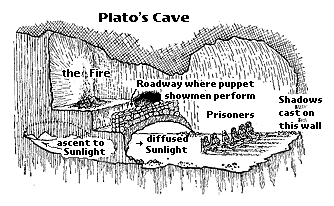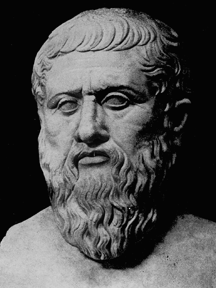The "Allegory of the Cave" consists of a conversation between Plato's student, Socrates, and Plato's brother, Glaucon. In the conversation, Socrates describes a cave in which men are imprisoned and fooled by a false reality. Socrates uses the allegory to define the role of the philosopher in society. To Socrates and Plato, philosophers can perceive the true nature of reality.
The false reality in the cave consists of "shadows."
The "shadows" are manipulated by men in power.
To free one's self from the "cave," one must rely upon one's intuition and spiritiuality and free one's self from a reliance on the senses, as physical reality can be manipulated and used to enslave one in state of perpetual ignorance.
Your Task: Imagine that Thoreau attempted to create his own version of the cave allegory to reflect the society and times in which he lived (mid-19th century America). Describe the cave of deception that Thoreau would imagine and post your explanation as a comment on this post.
- Due by midnight, Wed. 10/30.








